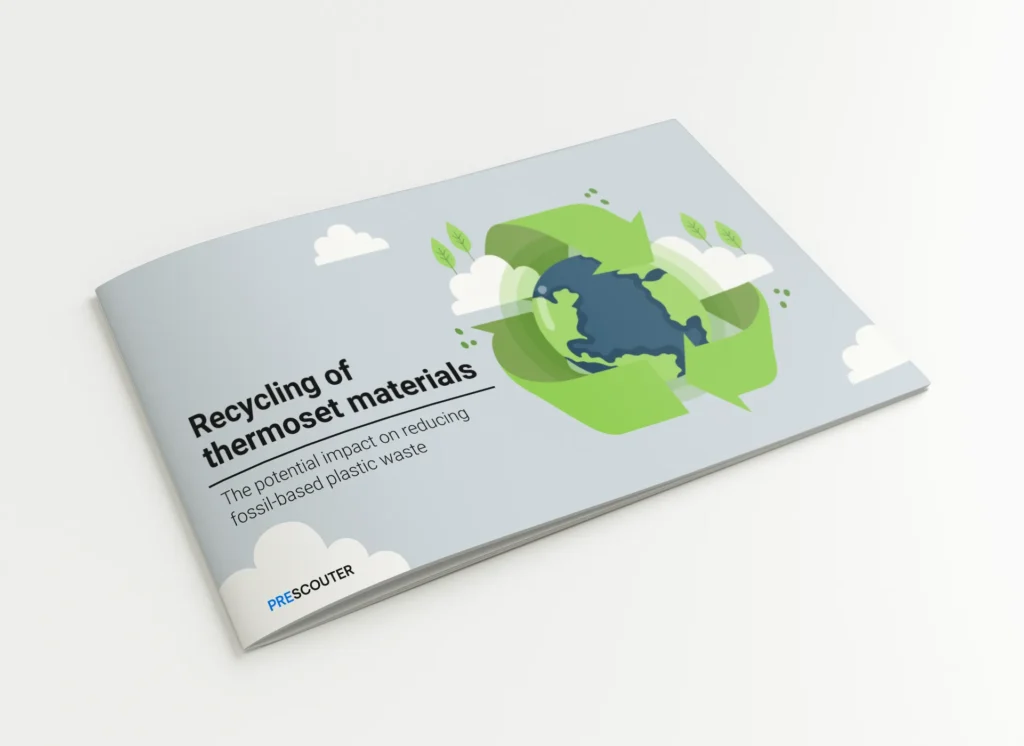Generally, plastic materials are classified as thermoplastics and thermosets, according to their chemical composition. From a technological point of view, thermoplastics are easily recycled and reprocessed by conventional methods, while thermosets have long been considered thermally unprocessable as a result of the presence of covalent intermolecular cross-links.
Around 11% of global plastic production volume (42 million tonnes) are thermosets. Currently, most thermoset polymers are landfilled or incinerated after their useful lifetimes, the least preferred waste management approach. Thermosets for which recycling solutions do exist and are currently available, thanks to recent efforts by players in the chemical industry, are composed of mainly polyurethanes, epoxies, and silicones, since either valuable material can be recovered or the output material can be used as building blocks in the manufacturing process of the original plastic material.
This report presents 9 commercially available solutions for the recycling of two important thermoset materials (polyurethane foams and reinforced epoxy thermoset composites) and mixtures of plastic materials that are considered to be difficult to recycle.
Included in this Intelligence Brief:
- Current scenario and forecasts of recycling of thermoset and thermoplastic waste
- Polymer recycling operations hierarchy
- Rundown of current routes for thermoset material recycling
- Technology overview of 9 commercially available thermoset material recycling solutions
- Exclusive interview with Sudhin Datta, PhD, Consultant on Polymers and Retired Senior Research Associate at ExxonMobil Chemical
If you have any questions or would like to know if we can help your business with its innovation challenges, please contact us here or email us at solutions@prescouter.com.








